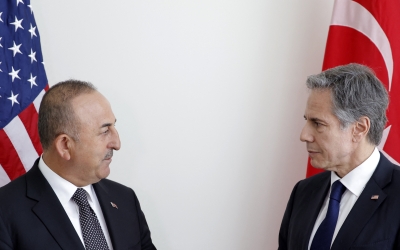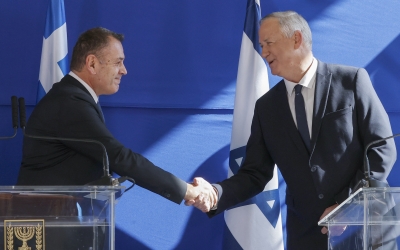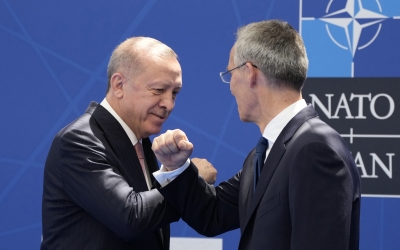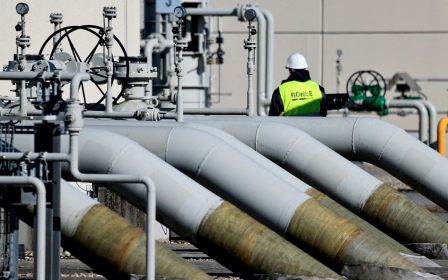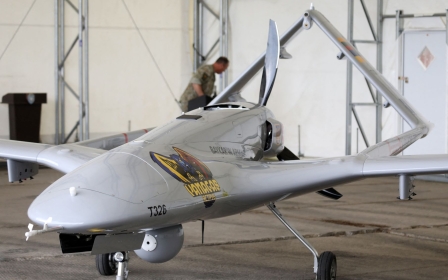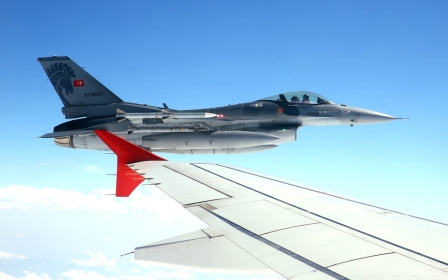Greece warns of Ukraine-style war with Turkey in East Mediterranean
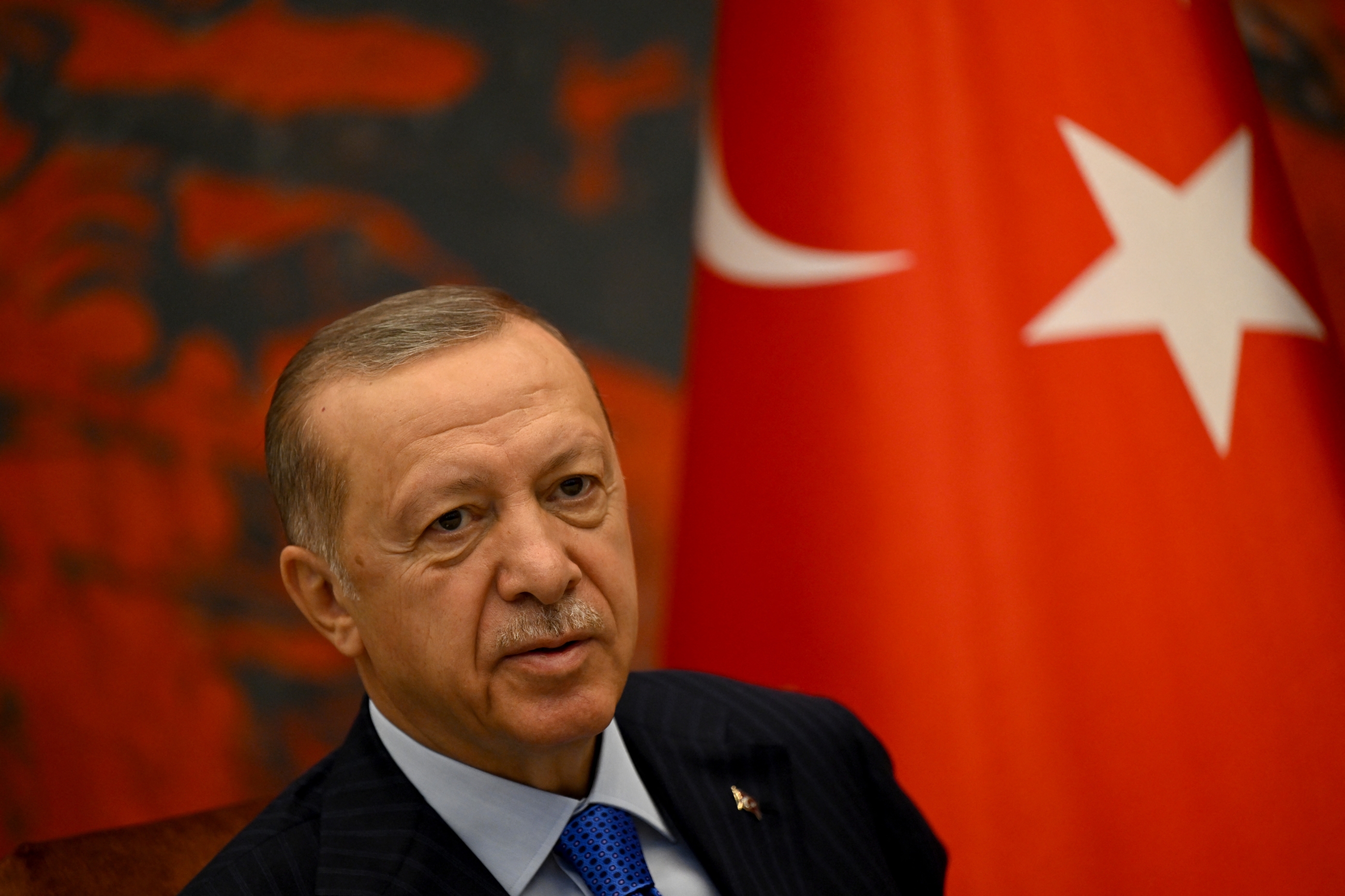
Tensions are boiling in the Eastern Mediterranean, with Greece saying the region risks falling into a war similar to that seen in Ukraine after Turkey raised the spectre of military action against its neighbour.
Turkey and Greece have long been enmeshed in a series of disputes, including over maritime rights, the sovereignty of Aegean islands, natural gas and airspace boundaries.
The Nato allies had a brief rapprochement after Russia's invasion of Ukraine, with Greek Prime Minister Kyriakos Mitsotakis making a rare visit to President Recep Tayyip Erdogan in Istanbul. Relations have, however, since plummeted.
On Tuesday, Erdogan reiterated a veiled threat, stating Turkey could "come all of a sudden one night," in response to what he claimed were hostilities emanating from Greece.
"What I'm talking about is not a dream," he said at a press conference in the Bosnian capital, Sarajevo. "If what I said was that we could come one night all of a sudden [it means] that, when the time comes, we can come suddenly one night."
New MEE newsletter: Jerusalem Dispatch
Sign up to get the latest insights and analysis on Israel-Palestine, alongside Turkey Unpacked and other MEE newsletters
'Vertical escalation'
The comments sparked an outcry in Greece, a country of 10 million people which fought a brutal war of independence from the Ottoman Empire in the 19th century. Many parts of Greece remained under Ottoman control before the empire's collapse after the First World War.
This year marks the 100th anniversary of the Greek-Turkish war of 1919-1922 and, on 30 August, Turkey celebrated Victory Day, when it drove Greek forces from Anatolia.
The war culminated in the population exchanges between the two countries known in Greece as the Catastrophe, and the battle over Greek-majority cities along the Anatolian coast, such as Smyrna, which is today the city of Izmir.
On Saturday, Erdogan made a pointed reference to the city, stating "Greece, look at history, go back in time; if you go too far, the price will be heavy. We have one thing to say to Greece: Remember Izmir."
In response, Athens sent letters to Nato, the European Union and the United Nations slamming what it called Erdogan's "openly threatening" and "inflammatory" statements.
The letters called for the organisations to condemn Erdogan's statements, which they said "imbue the Turkish people with hatred, enmity and contempt towards their Greek neighbors".
"By underestimating the seriousness of the matter, we risk witnessing again a situation similar to that currently unfolding in some other part of our continent," the letters added, in reference to the war in Ukraine.
Some analysts caution that the war of words risks catapulting Greece and Turkey back to the tensions of 2020, when their warships collided and the two were on the verge of conflict.
"We have a vertical escalation here, and a dangerous incident could occur at anytime," Zachariah Micha, director of studies at the Institute for Security and Defence Analysis in Athens, told Middle East Eye.
"Turkey has a history of announcing what it is going to do, as it did with invasions in Syria. Erdogan may be preparing the international audience for something that is going to happen."
'Maximalist positions'
Unchecked tensions between the two have a history of spiralling out of control. Greece opposed Turkey's 1974 invasion of Cyprus and the two almost went to war in 1996 over an uninhabited Aegean island.
The letters sent by Greece come less than a week after an appeal from Turkey to the same organisations laying out its arguments over the countries' bilateral disputes.
Last month, Turkey accused Greece of harassing one of its F-16 fighter jets over international waters with a Russian-made S-300 missile system based on the island of Crete. Greece has rejected the allegation.
Ankara has long been frustrated by Greece's ownership of Eastern Mediterranean islands which it says box in its coastline, the longest in the region. Turkish fighter jets often fly over Greek islands and the two countries' air forces frequently engage in mock dogfights.
Turkey has threatened war should Greece extend its eastern islands'’ territorial waters to 12 nautical miles, as it is entitled under the UN Convention on the Law of the Sea. Turkey is not a signatory to the treaty.
On-and-off talks to resolve differences have been hamstrung over parameters for negotiations.
Athens says discussions should be limited to the issue of maritime demarcation and exclusive economic zones (EEZs), while Ankara has called for broader discussions to include topics such as the demilitarisation of Greece's Aegean islands, which it says is in violation of First- and Second World War-era treaties.
"Turkey and Greece have both decided to adapt a maximalist position in the Aegean, and that follows with escalating rhetoric," Soner Cagaptay, director of the Turkish research programme at the Washington Institute for Near East Policy, told MEE.
Cold War 2.0
The tensions have been turbocharged by the discovery of potentially lucrative gas deposits in the disputed waters.
In 2019 Turkey signed a controversial maritime accord with the Libyan government that ignored Greece's claim to an exclusive economic zone via the islands of Crete and Kastellorizo. Greece subsequently signed a similar maritime deal with Egypt.
Rising natural gas prices as a result of Russia's invasion of Ukraine have added a new layer to the feud. Last month, Turkey dispatched a seismic research vessel into the Eastern Mediterranean for the first time in two years, while Greece has pledged to increase exploration.
In some ways, the war has also revived the Cold War-era tussle that played out between the two Nato countries on the edge of Europe. Greece has seen its importance to the alliance grow, with US troops and supplies destined for Eastern Europe flooding into the port city of Alexandroupoli.
Ties between Athens and Washington have deepened as Turkey continues to vacillate with the West. While it has supplied armed drones to Ukraine, Ankara has also extended a hand to Russia, agreeing to price some oil sales in Roubles.
Ankara has also attempted to bill itself as a mediator in the conflict in Ukraine, helping to seal a UN-backed deal unblocking Black Sea grain supplies, but it is also pushing key policy priorities of its own, such as a crackdown on Kurdish militants in Nordic countries looking to join Nato, and the purchase of F-16 fighter jets from the US.
'The last straw'
Murat Aslan, a former Turkish military professional now with Seta, a think-tank with links to Erdogan's government, told MEE the downward spiral in ties began with the Greek prime minister's trip to Washington in May, where he lobbied against arms sales to Turkey. Erdogan severed all bilateral talks with Greece after the visit.
"Erdogan's comments are a reflection of how Turks are really tired and bored of the Greeks' attitude," Aslan said.
"Mitsotakis going to the US and complaining about Turkey behind its back was the last straw. There is no sense of trust [after that]."
Both Greece and Turkey are entering elections next year, which analysts warn could prolong the period of instability.
Turkey's economy has been battered by an economic crisis, with inflation shooting above 80 percent. While Erdogan has sought to patch up ties with some regional states such as Israel and the UAE, his comments on Greece appear to indicate a hardening of his position, claiming Greece was "occupying" islands in the Aegean.
"Such a comment has never been told by a Turkish leader before. Erdogan is implying that the Aegean islands are not legitimately Greece's, he's upping the ante and betting that Greece will not keep up," Cagaptay said. "I can't see Mitsotakis saying 'Constantinople is occupied and it's ours'."
Some longtime observers of Greek-Turkish relations say the current tensions are likely to remain a war of words.
Panayotis Tsakonas, head of the security programme at the Hellenic Foundation for European and Foreign Policy, primarily funded by the European Commission, told MEE that he saw an "asymmetry" between Turkey's rhetoric and its actions. He believes Ankara still hopes to maintain calm in the Eastern Mediterranean as it pursues the modernisation of its F-16 fleet from the US:
"Erdogan is calibrating between not taking an aggressive stance in the Eastern Mediterranean because of negotiations with the US, and at the same time appeasing nationalists in his domestic audience."
Tsakonas said Athens' claim war could break out in the Eastern Mediterranean was likely "an exaggeration" in order to garner the support of an international audience over what Greek leaders continue to see as a serious security risk.
Middle East Eye delivers independent and unrivalled coverage and analysis of the Middle East, North Africa and beyond. To learn more about republishing this content and the associated fees, please fill out this form. More about MEE can be found here.


